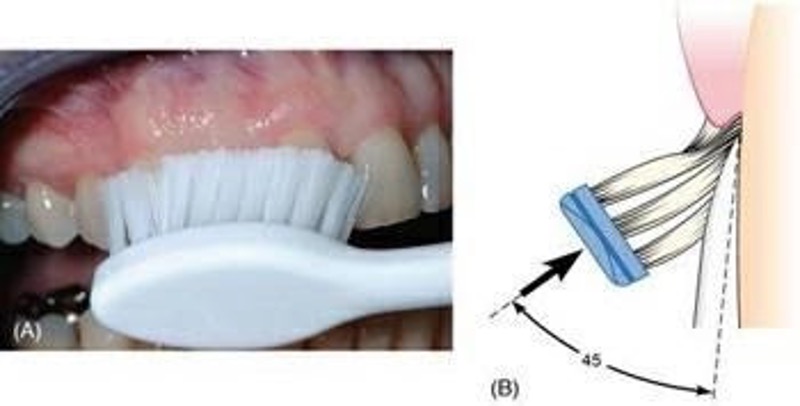In our last article we focused on five common mistakes made using the toothbrush. In this article, we will discuss a few more mistakes made involving the toothbrush.
Remember, proper brushing and flossing is not automatic because you are an adult. All adults must be taught the proper technique. Those who were never properly taught carry bad habits into their adult years resulting in rampant gum disease and dental decay.
Here are four more common mistakes with brushing:
- Not effectively cleaning your tongue. Use a tongue scraper.
Although it is important to spend two-minutes every morning and before bedtime to clean your teeth, you increase your oral health by adding tongue cleaning to this routine. It is very important and beneficial to scrapethe tongue because the tongue is a reservoir for bacterial build-up. Most cases of bad breath are directly linked to an accumulation of bacteria on the tongue. When the bacteria feed, the poop from the bacteria gives off gases, creating an unpleasant odour. Cleaning the tongue helps to target the cause of bad breath and will also help to remove bacteria and food debris. As you are aware, plaque is the main cause of dental decay and gum disease.
Scrapers are simple to use; you simply scrape the top of the tongue from back to front and let the device do the hard work. If you have any challenges you should speak with your your dentist or dental hygienist.
- Using a Hard or Medium bristled toothbrush.
Hard and medium toothbrushes have thicker bristles that can damage your tooth enamel and your teeth, not to mention cause recession of your gums. Both hard-bristled toothbrushes as well as brushing your teeth too hard can lead to receding gums. This can cause sensitivity and even cavities. If your gums bleed when you brush, this may be a sign that your toothbrush is too harsh and may be cutting into your gums.
Use a soft tooth brush with nylon bristles. Nylon bristles tend to be more gentle on your teeth and gums. A soft brush makes it difficult to brush too hard. A soft brush is definitely more-gentle on the gums and they work just as well as a medium and hard brush.
- Using poor brushing techniques.
Once you choose the right soft toothbrush, it’s still important to know how best to brush your teeth. Using a scrubbing stroke causes damage to your teeth and gums. Also, placing heavy thumb pressure also creates heat and can damage your dental tissues.
The first step of good brushing is to brush twice a day every day for at least two minutes at a time and at least once again before bedtime. Do whatever you need to do to make brushing your teeth a priority part of your morning and evening routines. You should time yourself to get as close as possible to two minutes.
For the best cleaning results hold your toothbrush at a 45 degree angle and focus on the gum line.
Use gentle circular motions to brush the outsides, insides, and chewing surfaces of every tooth. The bristles must touch the exposed surfaces of the teeth to remove plaque. Plaque is sticky so it must be disrupted with the bristles of the brush.
- Brushing more than two times per day.
Brushing more than twice a day sounds impressive, but it isn’t. Here are some of the problems caused by an over aggressive approach to brushing:
- Dental abrasion occurs when something outside of the body wears away tooth enamel. This can happen when you brush too hard or too often. Teeth may appear worn, shiny, or have yellow or brown spots near the gums.
- Tooth sensitivity – Overbrushing can also cause tooth sensitivity. Once the enamel protection is worn away, the inner tooth nerves can become exposed, causing pain when you eat or drink something hot or cold or touch the area.
- Gum recession – Your gums naturally cover part of your teeth and protect the sensitive inner layers. But if the gums recede due to rough brushing, teeth may appear longer and you may start to see the once-hidden parts of teeth. This can also increase the risk of decay.
We have discussed four more common mistakes adults make with brushing. Remember, tooth brushing is not as simple as it appears. See your dentist or hygienist for regular visits. Follow these health tips and preserve your dentition. Your teeth are meant to last a lifetime.
Dr. Kendal V. O. Major is Founder and CEO of Center for Specialized Dentistry which is a comprehensive family dental practice operating in Nassau and Freeport. He is the first Bahamian Specialist in gum diseases and dental implants since 1989. He also is a certified Fastbraces provider. His practice is located at 89 Collins Avenue, Nassau at (242)325-5165 or [email protected].

Tongue Scraper removes odor causing bacteria

Place toothbrush at 45-degree angle to capture plaque at gum line

Severe toothbrush abrasion caused by poor brushing technique





